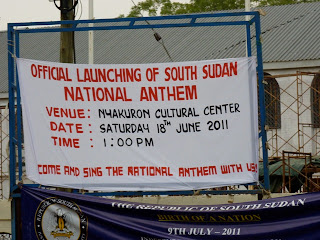The Long Slog North
Part I
Guinea-Bissau marks the southernmost point on this particular trip, so now I turn around and head north. The car I’m riding in today is so dilapidated—no door handles, mirrors, padding—it gives me encouragement that I can get another twenty years out of my Miata. It’s amazing that these cars over here run. Well, maybe they don’t because you see constant breakdowns, especially with the buses, on the side of the road.
Today’s leg is only the 3-hour bush taxi repeat back to Ziguinchor, but this time I have much more colorful characters in the car. Noteworthy is an Arabic speaking man dressed in what looks like pale blue hospital scrubs with long, white filmy yards of fabric hanging off him. Well nothing stays white for long around here. And he’s got a black scarf on and a black beard. For the first few hours, he recites surahs from the Koran. Then he starts singing them at full voiced throttle up, and this clearly annoys the driver and a few of the passengers. They turn and give him hard stares, but this only motivates him to really go at it. He carries prayer beads and a mobile phone, which plays the Nutcracker Suite as its ring tone. About every half hour, the police, immigration, and assorted officials rummage through his suitcase. And behind me, someone’s mobile phone is a source of constant entertainment. This couple started laughing so hard, I have to turn around and see what it is. They show me a video of the belly of a pig or an iguana that’s getting poked, or tickled, or tormented in some way. This causes just crazy laughing, donkey laughing, and it goes on for hours.
Part II
I set out for the Gare Routiere at 6:30am to find a bush taxi for Dakar. These places are usually bedlam, and it’s worth an extra dollar to hire a fixer to push and bully me into a car. My guy takes his job seriously and deputizes two other passengers to look after me all the way to Dakar. He even rides his bike part of the way as follow up, or perhaps to ask for a little extra money for a drink. Nobody knows how long the day will be; all inquiries are answered with “ça depend” it depends—on the Gambian border. It’s hard to imagine, but there’s another country smack in the way.
What’s called the “Trans-Gambian Highway” is a little deceptive—unless you call a one-lane, rutted, dusty track a highway. I’ve read terrible things on the Internet about the corruption of the Gambian border, but I experience no such thing. Immigration could not have been nicer, and they did not even charge me the couple of dollars for the passport stamp—as they did to some Senegalese who were traveling on French passports. Maybe it’s Obama goodwill. Who knows?
Crossing the Gambia is a mess, because you have to cross the Gambia River. Two ferries go back and forth, and trucks and cars and people are lined up for some distance. And it’s hot and dusty. My fellow car passengers and I walk on down to the ferry, intending to wait for our car and driver on the other side. An enormous truck heaping with mangoes tries to drive onto the ferry but begins to tip over before sinking into the mud. This is a problem. No more cars or trucks can get on the ferry, nor can a second ferry unload. An hour goes by. Then into the second hour, a chain is produced and the mango truck is pulled onto the ferry by a truck that was already on board. We’re back in business.
Twelve hours later, we arrive in Dakar. True to their word, the deputized passengers since the morning make sure I’m in a taxi at a fair price to my hotel. It seems, too, I've missed some more rioting in the streets of Dakar. Yesterday, people took to the streets and burned cars and buildings because they're fed up with all the electricity cuts. Can't say I blame them. The military was called out, and helicopters flew around that god-awful African Renaissance statue to protect it.
The staff at my hotel take one look at me and suggest I sit and have a drink, but I tell them I am far too filthy to be in their lobby, and I head straight into a shower with my clothes on and scrub down.
 I'm riding with a torso behind me.
I'm riding with a torso behind me.



























